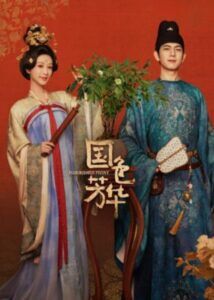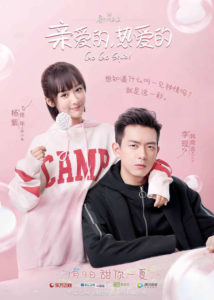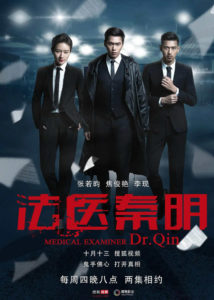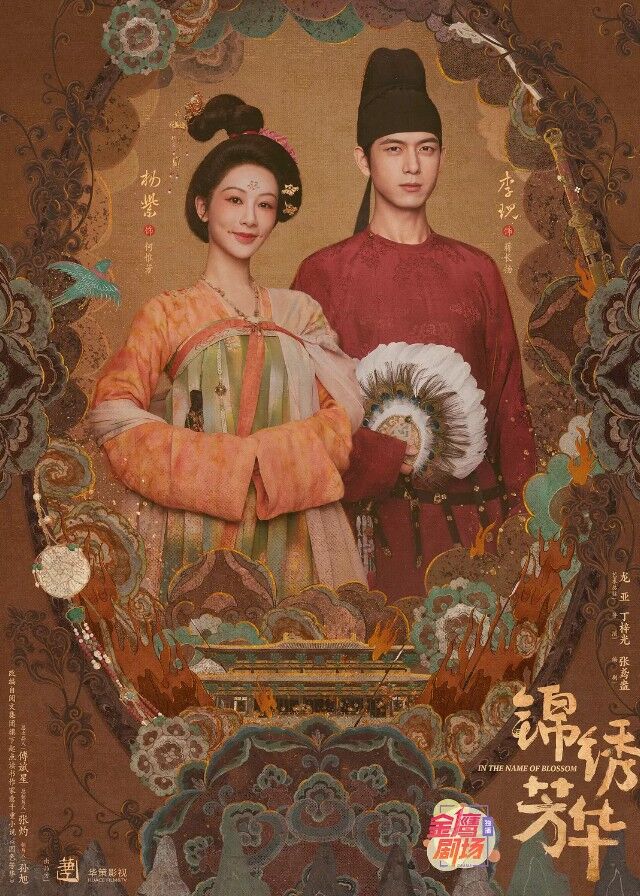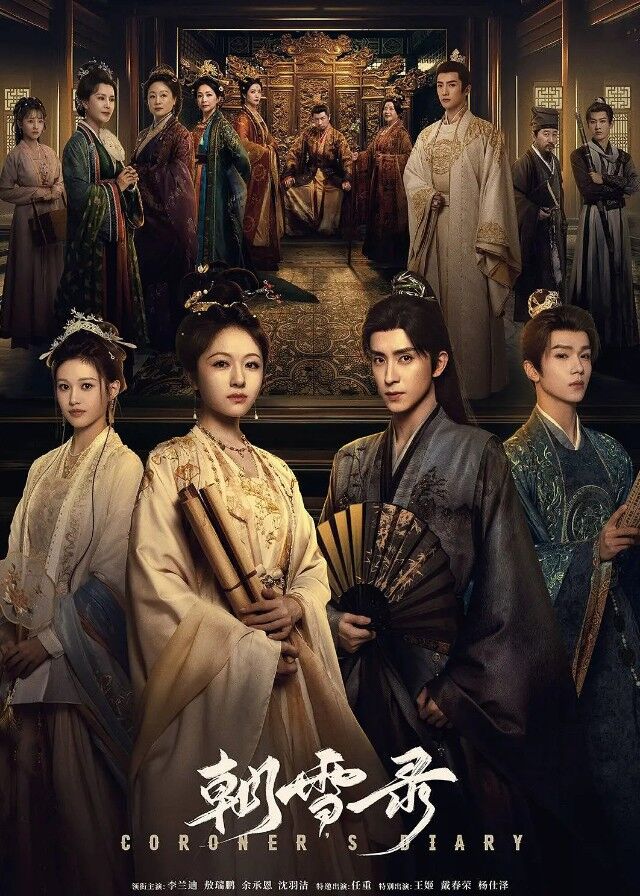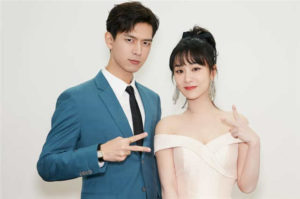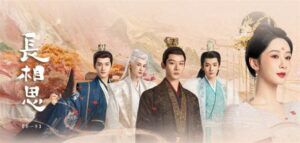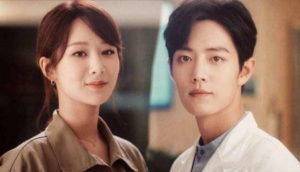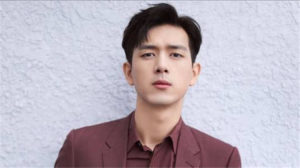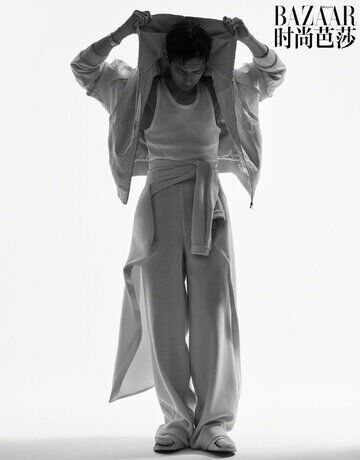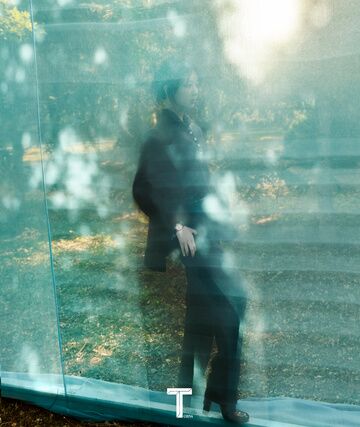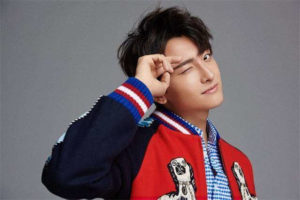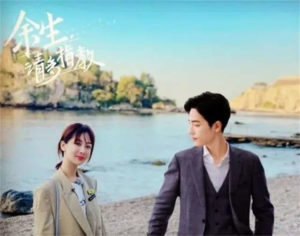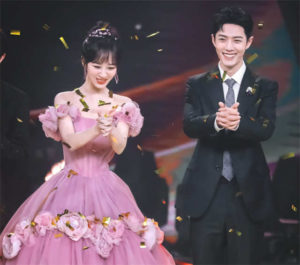In the Name of Blossom Episode 12 Recap
> In the Name of Blossom Recap
Jiang Changyang, who had meticulously orchestrated a plan against Prince Ning and his son-in-law, Liu Chang (whom Prince Ning had appointed as Transport Officer), learned that Assistant Minister Lu had boarded Liu Chang's boat with guards. This confirmed that the "poisoned bait"—Liu Chang's lucrative but treacherous position—had been taken. Jiang Changyang knew Prince Ning harbored boundless ambition for rebellion, secretly acquiring copper and iron mines to manufacture private weapons.
Liu Chang, backed by Prince Ning, dared to transport such prohibited goods. Jiang Changyang had placed She Yan as a covert informant; despite She Yan's notoriously tight lips, which even kept the specific details of the goods from Jiang's own subordinates, the intelligence he provided allowed Jiang Changyang to finally catch Prince Ning red-handed.
Jiang Changyang also orchestrated for the "Floral Envoy" to "accidentally" catch a chill while attempting to catch the first fish of Spring, ensuring his absence when the Emperor's fury was unleashed upon Liu Chang. Assistant Minister Lu arrived at the dock late at night, stating he had received a report of illegal smuggling and had come to verify. Liu Chang, surprised by the visit, attempted to delay the inspection, citing his approval for the shipment.
However, Assistant Minister Lu insisted on searching the boat, stating that if it proved a false alarm, he would apologize. Liu Chang warned him against offending Prince Ning, but Lu remained firm, asserting his duty. Upon opening the cargo holds, they discovered not raw ore, but numerous copper statues of deities. Liu Chang had seemingly cast the copper into statues to conceal its true purpose and evade suspicion.
Despite Liu Chang's attempts to hide the truth, he was summoned to the palace by the Emperor. Liu Chang confessed his guilt but framed his actions as filial piety, explaining that his father, a devout believer who had recently fallen ill after being dismissed from his position, believed inviting 99 deities to his home would cure him. Liu Chang claimed he had privately cast these statues as a birthday gift.
The Emperor, however, was angered by the widespread rumors caused by the transport of nearly a hundred statues, viewing Liu Chang's actions as an abuse of power and a breach of trust that undermined the credibility of officials and the Emperor himself. Prince Ning, sensing the Emperor's wrath and fearing further complications, swiftly interceded.
He vouched for Minister Zheng, who had been implicated by another official, then, displaying what he called righteousness, urged the Emperor to remove Liu Chang from his position as Transport Officer as a severe punishment to set an example. The Emperor agreed and, to reassure the citizens, appointed Assistant Minister Lu as the new Transport Officer, tasking him with eradicating smuggling and corruption.
After being dismissed, Liu Chang met with Prince Ning, who assured him that while the statues had been discovered, the widespread belief in his father's devotion to deities made his filial piety excuse somewhat plausible. Prince Ning explained that the current investigation was merely for show, and once the Emperor found new interests, Liu Chang would have an opportunity to return to court. He advised Liu Chang to lay low, as the weaponry workshop would be temporarily dissolved.
Meanwhile, the He family faced increasing financial hardship, with their business plummeting since Auntie had driven He Wei Fang away. Mr. He struggled to repay debts, and his home was in disarray. His wife, Auntie, continued to spoil their son, Man Er, who complained about simple snacks and demanded expensive ones. Mr. He chastised Auntie for her extravagance, reminding her of their family's dire situation.
Auntie, however, resented He Wei Fang, comparing her unfavorably to Man Er and criticizing her for not sending support despite her success in Chang'an. Mr. He defended He Wei Fang, stating that the Fragrance Garden, left to He Wei Fang by her mother, should not be sold for their business, and that He Wei Fang had suffered greatly in Chang'an.
Auntie retorted that face could not be turned into money, and if He Wei Fang had any filial piety, she should return with riches and apologize. Auntie then decided to take Man Er to Chang'an to demand help from He Wei Fang. Upon their arrival at the Fragrance Garden, Auntie feigned concern for He Wei Fang's father, claiming he was in debt and too busy to visit.
He Wei Fang expressed dismay at her family's decline and offered jade and silk to alleviate their immediate needs, promising to help her father's business recover. However, Auntie pressed further, suggesting these measures were insufficient and demanding that He Wei Fang hand over the Fragrance Garden, which she claimed was the fundamental source of He Wei Fang's wealth. He Wei Fang grew suspicious, knowing her father would never ask for the Fragrance Garden, which was her mother's cherished dowry.
Realizing Auntie had come without her father's knowledge, He Wei Fang refused to give her a single penny or the Fragrance Garden, and asked her guests to be escorted out. Auntie, desperate, pleaded by highlighting Man Er's young age and the family's potential suffering. Man Er, mimicking his mother, called He Wei Fang unfilial.
Auntie then escalated her insults, claiming that as a mere woman, He Wei Fang would eventually have to kneel to her younger brother, Man Er, as the family heir. Sui Zhi, He Wei Fang's attendant, intervened, reminding Auntie that He Wei Fang had established her own household and was the renowned owner of Huamanzhu, a business personally praised by the Emperor.
As Auntie became increasingly agitated, she blurted out a shocking revelation: He Wei Fang's mother had not died of illness, but was poisoned. He Wei Fang, stunned, demanded more information. Auntie revealed that the poisoner was her enemy and the poison was incurable; only the Zixi pill might have saved her, which explained why He Wei Fang's father had risked his life to find that tribute medicine. He Wei Fang was skeptical, as her benevolent mother had no known enemies.
Auntie insisted that He Wei Fang simply did not know the truth and challenged her to consider the strange, rapid onset and progression of her mother's illness. Auntie offered to reveal the poisoner's name for five thousand bolts of silk. He Wei Fang agreed. The name Auntie provided was "Wu Hong." He Wei Fang immediately sent Sui Zhi to investigate.
Sui Zhi reported his findings: Wu Hong, originally from Luoyang, had worked as a servant in a noble's household in Chang'an and returned to his hometown during the period of He Wei Fang's mother's illness, which confirmed the timeline.
Sui Zhi also noted that Wu Hong had disappeared for a time after returning to Chang'an, changed his name, and now lived a reclusive life, running a clinic for orphans and the sick outside the city, where he was highly praised by his neighbors for his kindness. He Wei Fang confronted Wu Hong, who admitted to poisoning her mother.
Wu Hong recounted how, years ago, he witnessed his parents, wife, and child under 15 die from a flood and subsequent epidemic, while the wealthy hid and bought medicine. Filled with hatred and despair, he sought to make someone from a wealthy family suffer as his family had. He posed as a destitute vegetable farmer needing burial money for his dead family members. He Wei Fang's mother, pitying his plight, gave him two strings of coins.
Wu Hong, however, harbored deep resentment against her kindness, seeing it as charity he did not need, and sought to make her suffer. He confessed that he poisoned her because she appeared harmonious and privileged while his own family was destroyed. Wu Hong acknowledged his crime and offered himself to He Wei Fang for any punishment she deemed fit. He Wei Fang, consumed by rage, lunged at Wu Hong with a dagger.
Jiang Changyang, however, immediately stepped in to protect Wu Hong, revealing that Wu Hong had watched him grow up and was like family. Jiang Changyang urged He Wei Fang to let go of her vengeance, arguing that killing Wu Hong would not bring her mother back and that vengeance would only perpetuate a cycle of hatred.
He Wei Fang, however, felt betrayed, questioning why Jiang Changyang had hidden this truth from her and stating that as they both had lost their mothers, he should understand her pain. She refused to let go, asserting that her mother, who was benevolent and compassionate, should not have died at the hands of such a heartless murderer.
Jiang Changyang insisted that Wu Hong had been atoning for his sins by living a frugal life and caring for children, and had even been present when Jiang Changyang bid farewell to his own mother. He Wei Fang, heartbroken and enraged, accused Jiang Changyang of being unreasonable and unable to distinguish right from wrong, and left in despair, her relationship with him strained once more.
In a poignant memory, He Wei Fang recalled her compassionate mother making medicine during a severe epidemic. Her mother explained how the rare and valuable ice crystal peonies, combined with other herbs, were crucial for treating the lung heat prevalent in the city. Despite the high cost, her mother distributed these medicinal packets to the poor who could not afford treatment, even stamping them with auspicious clouds to convey blessings and hope for their recovery.





